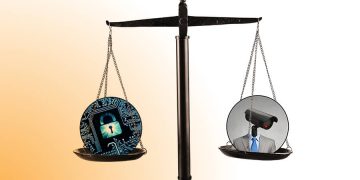Introduction
The blockchain technology landscape has evolved dramatically over the past decade, bringing forth significant transformations in various sectors, particularly in enterprise-level solutions. Among the many key features of blockchain, smart contracts have emerged as a vital element, acting as the core of many enterprise blockchain systems. A smart contract is a self-executing contract with the agreement between buyer and seller directly written into lines of code. Operating on decentralized blockchain networks, these contracts offer an automated, secure, transparent, and cost-effective way of facilitating business operations and transactions.
Enterprise blockchains, which operate within closed or permissioned environments, rely heavily on the use of smart contracts to enhance operational efficiency, ensure security, and streamline business processes. This article delves into why smart contracts are regarded as one of the most critical features of enterprise blockchain solutions, examining their functionality, benefits, challenges, real-world applications, and future prospects.
Understanding Smart Contracts in Enterprise Blockchain
A smart contract is a computer program that automatically executes the terms of a contract when predefined conditions are met. Built on blockchain technology, smart contracts are capable of facilitating, verifying, and enforcing the negotiation or performance of an agreement. These contracts are stored on the blockchain, making them tamper-proof, transparent, and immutable.
Key Features of Smart Contracts
Smart contracts offer several unique features that make them indispensable in the enterprise context:
- Automation: Smart contracts automatically execute once conditions are fulfilled, minimizing the need for manual intervention.
- Transparency: All parties involved can view the contract terms and the transaction history, ensuring transparency in business processes.
- Security: Blockchain’s decentralized nature and cryptographic mechanisms ensure that data stored within smart contracts is secure and resistant to tampering.
- Immutability: Once written to the blockchain, smart contracts cannot be altered or deleted, ensuring the integrity and permanence of agreements.
- Cost Reduction: By removing intermediaries and automating transactions, smart contracts reduce operational costs for businesses.
- Accuracy: By eliminating the possibility of human error, smart contracts ensure that all terms of the agreement are executed as intended.
Why Smart Contracts are Essential for Enterprise Blockchain
Enterprise blockchain solutions are designed to meet the complex needs of businesses, particularly in fields such as finance, supply chain management, healthcare, and more. In these industries, where large volumes of transactions and critical data are exchanged, it is essential to automate and secure processes. Smart contracts are the driving force behind these operations, offering several advantages:
1. Improving Operational Efficiency
In traditional business environments, executing contracts can be time-consuming, require manual intervention, and involve multiple intermediaries. Smart contracts automate these processes, which can greatly reduce the time required to execute agreements. For example, a supply chain company can use smart contracts to automatically release payments once goods are delivered and verified. This seamless process reduces the need for administrative intervention and eliminates bottlenecks caused by manual tasks.
2. Minimizing Intermediaries and Reducing Costs
Smart contracts reduce or completely eliminate the need for intermediaries such as banks, notaries, or legal professionals in contract enforcement. This significantly lowers transaction costs and minimizes the risk of human error. For example, in cross-border payments, smart contracts can directly transfer funds between parties once conditions are met, bypassing expensive bank fees and intermediaries. Similarly, in real estate, smart contracts can automate property transfers and reduce the need for lawyers or brokers.
3. Enhancing Transparency and Trust
In traditional systems, trust between parties often depends on intermediaries or a centralized authority. Smart contracts, being transparent and immutable, help build trust between parties by ensuring that the contract terms are executed as written. All parties can independently verify that conditions are met, providing an auditable and tamper-proof record. For example, in healthcare, using blockchain and smart contracts for patient data management ensures that both patients and healthcare providers can trust the authenticity of the data.
4. Ensuring Security and Compliance
Security is paramount for enterprises, particularly in industries such as finance and healthcare, where sensitive data is often exchanged. Smart contracts, backed by blockchain’s cryptographic features, ensure that once a contract is deployed, it cannot be altered or tampered with. This provides a high level of security and helps prevent fraud or unauthorized modifications to the contract terms. Additionally, smart contracts can be designed to ensure compliance with regulatory requirements, automatically verifying that all actions taken within the contract are in line with applicable laws.
5. Reducing Human Error and Disputes
Human errors, such as missed deadlines, incorrect data entry, or overlooked clauses, are common in traditional contract execution. By automating processes, smart contracts eliminate the possibility of such mistakes. This guarantees that all terms are met with precision, thus reducing the likelihood of disputes. For example, a payment contract embedded with a smart contract can be automatically triggered based on the successful completion of an agreed-upon task, such as the delivery of goods, without the need for human approval or oversight.

Real-World Applications of Smart Contracts in Enterprises
Smart contracts are already being used across various industries to streamline processes, reduce costs, and increase efficiency. Below are a few key applications of smart contracts in enterprises:
1. Supply Chain Management
Supply chains often involve numerous parties, including suppliers, manufacturers, logistics companies, and retailers. The flow of goods, payments, and data between these stakeholders can be slow and prone to errors or fraud. Smart contracts can automate several processes within the supply chain, such as:
- Automating Payments: Once goods are delivered, smart contracts can trigger payments automatically, ensuring timely and accurate transactions.
- Tracking Goods: Smart contracts can track the origin, movement, and status of goods in real-time, increasing transparency and reducing fraud.
For example, IBM’s Food Trust uses smart contracts to enhance transparency and traceability in the food supply chain, ensuring food safety and reducing the time required for product recalls.
2. Financial Services and Payments
In the financial industry, smart contracts are enabling decentralized finance (DeFi) by automating processes such as lending, borrowing, and trading. Smart contracts allow for:
- Automatic Lending and Borrowing: In decentralized lending platforms, smart contracts facilitate peer-to-peer lending without the need for intermediaries like banks.
- Cross-border Payments: Smart contracts can automate the exchange of currencies, reducing costs and increasing the speed of international payments.
- Automated Insurance Claims: Smart contracts can trigger automatic payouts for insurance claims based on predefined conditions, such as flight delays or damage to property.
For instance, Aave and Compound are DeFi platforms that use smart contracts to allow users to lend and borrow assets without relying on traditional banks.
3. Real Estate Transactions
Real estate transactions are often complex and involve multiple parties, including buyers, sellers, brokers, and notaries. Smart contracts can streamline this process by automating key tasks:
- Property Transfer: Smart contracts can automatically transfer ownership of property once all conditions are met, such as payment and document verification.
- Automated Payments: Smart contracts can facilitate mortgage payments, rental agreements, and commission payments to agents, ensuring that these payments are timely and accurate.
Platforms like Propy are already using smart contracts to automate the entire real estate transaction process, making it faster and more secure.
4. Healthcare and Medical Data Management
Smart contracts are revolutionizing healthcare by enabling secure and transparent management of patient data and medical records. By using blockchain and smart contracts, healthcare providers can ensure that patient data is only accessible by authorized individuals, reducing the risk of data breaches. Additionally, smart contracts can automate:
- Insurance Claims: Smart contracts can automatically verify insurance claims and trigger payouts when a medical procedure is completed or when specific conditions are met.
- Drug Traceability: Smart contracts can track the distribution of pharmaceutical products to ensure that drugs are sourced ethically and are safe for consumption.
5. Legal and Compliance Automation
In the legal industry, smart contracts can automate the execution of legal agreements, such as employment contracts, non-disclosure agreements (NDAs), and intellectual property transfers. These contracts can ensure compliance with specific terms and conditions, reducing the need for lawyers or notaries to verify agreements manually. Furthermore, smart contracts provide an auditable record that can be used in legal disputes.
Challenges in Implementing Smart Contracts for Enterprises
Despite their numerous benefits, there are several challenges associated with the implementation of smart contracts in enterprise settings:
1. Technical Complexity
Developing and deploying smart contracts require specialized knowledge in blockchain programming languages, such as Solidity. Enterprises may lack the necessary in-house expertise and may need to hire specialized developers or rely on third-party vendors.
2. Legal and Regulatory Uncertainty
The legal status of smart contracts is still evolving. Many countries have not yet established clear regulatory frameworks for smart contracts, creating uncertainty for businesses. Enterprises may need to work closely with legal experts to ensure that their smart contracts comply with local laws and regulations.
3. Security Risks
While blockchain technology is inherently secure, smart contracts are not immune to bugs, vulnerabilities, or exploits. If a smart contract is not properly coded or audited, it can be vulnerable to hacking. For example, in 2016, the DAO hack exploited a vulnerability in a smart contract on the Ethereum blockchain, resulting in a significant loss of funds.
4. Scalability and Performance
As enterprise blockchain networks grow, the scalability of smart contracts can become an issue. Blockchain networks may face performance bottlenecks when processing large numbers of transactions or complex contracts. To address this, enterprises need to ensure that their blockchain infrastructure can scale accordingly.
5. Integration with Legacy Systems
Many enterprises operate on legacy systems that may not be compatible with blockchain technology. Integr
ating smart contracts into existing infrastructure can be challenging and may require significant investments in system upgrades and reengineering.
Conclusion
Smart contracts are undoubtedly one of the most important features of enterprise blockchain solutions, offering numerous benefits, including automation, transparency, cost reduction, security, and accuracy. By facilitating self-executing agreements, smart contracts can help businesses streamline operations, reduce reliance on intermediaries, and ensure compliance with regulatory requirements. However, businesses must also address the technical, legal, and security challenges involved in deploying smart contracts.
As blockchain technology continues to evolve and mature, the use of smart contracts in enterprise environments is likely to grow exponentially, driving innovation across industries. For enterprises that can successfully implement and leverage smart contracts, the potential for efficiency gains, cost savings, and enhanced security is immense, making smart contracts a core function in the future of business operations.

















































